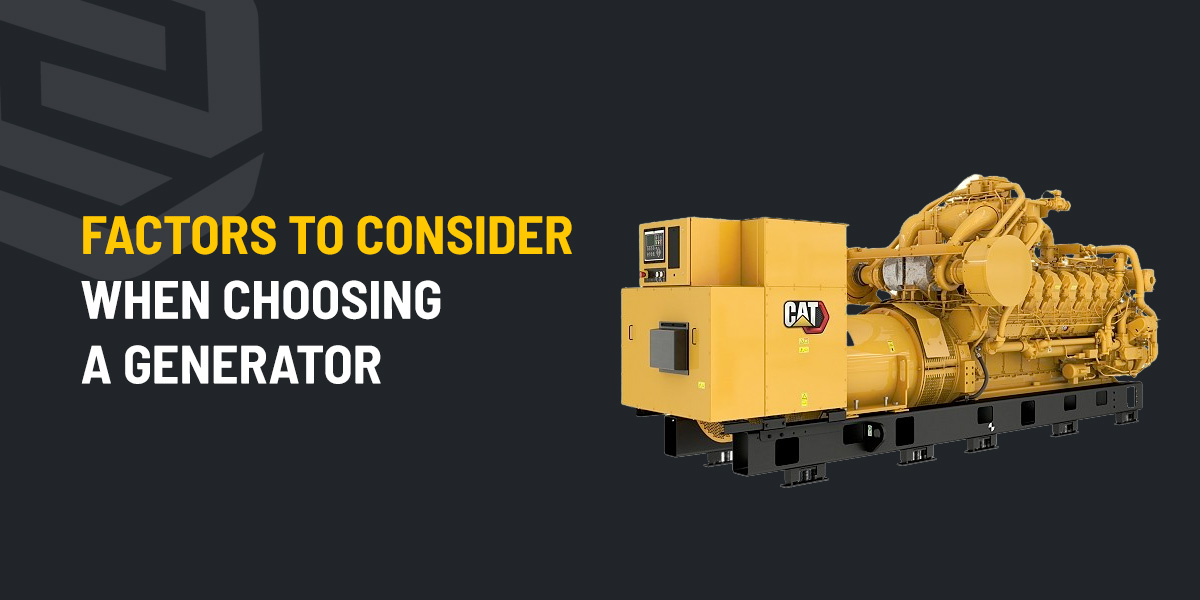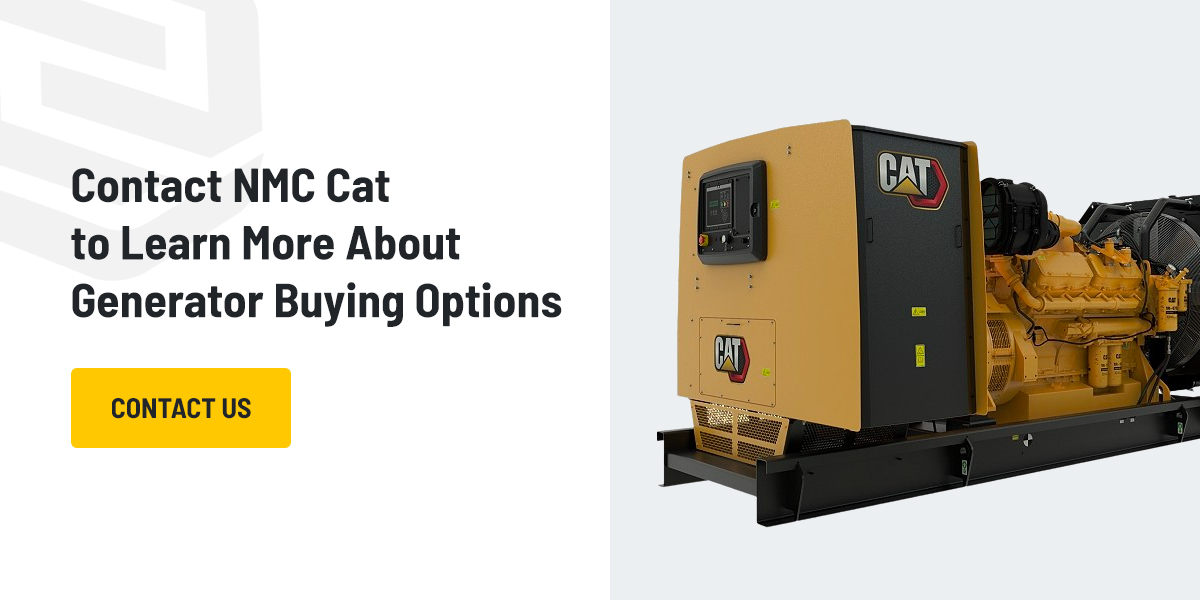
Factors to Consider When Choosing a Generator
Category: Equipment and Solutions
Choosing a generator might sound like an easy experience, but there are numerous aspects to keep in mind. You need to think about the power requirements, noise ordinances, how long you’ll have to run it — and more.
To pick the right generator, you need to carefully consider these factors to ensure you make the right choice for your business, location and application.
What to Look for in a Generator
If you’re wondering how to choose a generator for a business, you want to consider your needs before looking at buying options. Start by thinking about your operation’s type and size, then delve into the following factors:
Power Requirements
Businesses that are looking into generators first need to consider necessary power requirements. Do you need single-phase or three-phase power? What will you be running?
Your power requirements are the total of everything you intend to power simultaneously with the generator. Think of the lighting, equipment and appliances you need to keep running. Consider if those will all be operating at one time or in intervals.
You need to choose a generator that can safely supply enough energy to meet all of your power demands, which will depend on the nature of your business. You can try to determine your power requirements on your own to get an idea, but it’s wise to contact a professional as well.
Fuel Choice
Commercial generators can run on liquid propane (LP), gasoline, natural gas or diesel. Each fuel type provides different benefits and drawbacks, so choosing the best generator for your business will depend on your preferences and needs.
For example, natural gas offers less energy than the other types, but it can be run through utility or municipal pipelines. Diesel has better energy density, yet it can be more complicated to store than propane.
Exploring the characteristics of the different fuel sources can help you narrow the field when buying a generator.
Noise Level
Depending on your business type and location, you will likely need to consider noise level requirements. For example, if your business is near residential areas, you may have to adhere to noise ordinances.
You’ll also want to consider whether the sound of the generator will disrupt your business. Even in a more remote or less populated area, generators can be quite noisy, which could affect your workspace as much as it would someone’s home or another company.
Running Time
How often do you intend to use your generator? If it’s purely for emergencies, you can use a different generator than a business that needs an off-grid power source for daily work.
Think about how long you will need to run your generator at a time — most models are not meant to run for hours on end. Be sure to explore generator options designed for your intended use so you get optimal performance.
Liquid-Cooled or Air-Cooled
Liquid-cooled and air-cooled generators are both useful in specific applications. An air-cooled generator’s simpler system uses air to cool the generator cabinet, engine and other components. Air-cooled generators have more size limitations, capping out at 22 kilowatts, and they struggle to work well in temperatures above 100 degrees Fahrenheit.
Liquid-cooled generators have a radiator and reservoir to direct liquid coolant throughout the engine and release absorbed heat. As long as your liquid-cooled generator is installed correctly, it can operate in high temperatures. These models have much larger power supply capabilities than air-cooled equipment.
Contact NMC Cat to Learn More About Generator Buying Options
When buying a commercial generator, factors like power requirements, usage duration, noise level and fuel type provide a great starting point for narrowing down your options. If you have more questions about how to choose a generator for your business, contact NMC Cat today for assistance or information on our selection.

